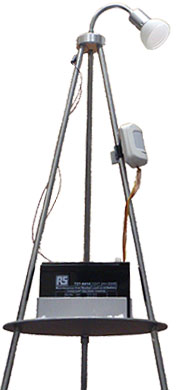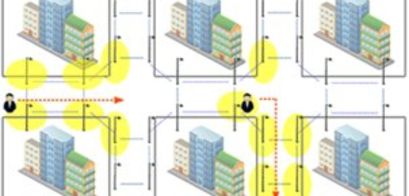International and interdisciplinary research group
The goal of the project, which came to an end in summer 2015, was to have German and Russian universities and research institutions set up a number of interdisciplinary projects that were to intensively involve small and medium-sized enterprises in particular, thus allowing them easier access to Russian markets and technology in Russia.
The research topics addressed were:
- Renewable energies – particularly photovoltaics and wind energy
- Control technology and energy buffering
- Communication systems and sensor networks
- Meteorology
The differences in approach when dealing with complex technological issues had to be overcome, and research and development activities were to be established in mixed teams. The research activities had to be sustainable in character, and the results had to be usable in both Russian and German markets.

Prototype of an intelligent street light using the Smart Lighting principle © E. Siemens
Smart Lighting
One city in Siberia has expressed an interest in the large-scale implementation of the Smart Lighting concept, which was developed at Anhalt University of Applied Sciences and tested during the project. An innovative joint pilot project relating to the development of autonomous energy supplies in remote Siberian villages is also to be realised. Moreover, a patent has been issued for intelligent street lighting – Smart Lighting.
Development of academic structures
In order to further the academic exchange between Germany and Tomsk, the National Research Tomsk Polytechnic University has established a guest professorship in “Embedded Systems”, which will be occupied by a professor from Anhalt University of Applied Sciences. From now on, the holder of this professorship will give twice-yearly lectures on Sensor Technology and Industry 4.0 as a block event while preparing students to obtain a dual degree in Tomsk and Köthen. The Master’s dual degree course in “Communication and Embedded Systems” will combine Tomsk University’s special competence in the field of sensors and measuring technology with the core competences of Anhalt University of Applied Sciences in communication technology and operating systems.
Additional project information
Contact
DLR Project Management Agency
European and International Cooperation
Dr. Karin Kiewisch
Tel.: +49 228 3821 1855
Hochschule Anhalt
Future Internet Lab Anhalt (FILA)
Prof. Dr. Eduard Siemens
Tel.: +49 3496 67 2327








